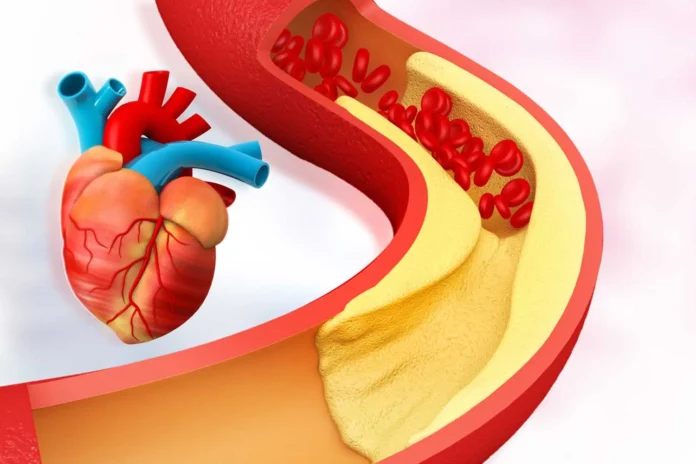High cholesterol is often called a “silent threat” for a reason. Most people don’t know they have it until a routine blood test or, worse, a serious health issue like a heart attack forces them to pay attention.
But while it doesn’t usually cause obvious symptoms, there are a few warning signs and indirect indicators that your cholesterol may be higher than it should be. Understanding these signs can help you take preventive action before it’s too late.
Here are 10 potential signs that may suggest you have high cholesterol:
1. Chest Pain or Discomfort (Angina)
One of the most common complications of high cholesterol is a buildup of plaque in your arteries, which can reduce blood flow to your heart. This can lead to chest pain, especially when you’re physically active or under stress. While not always caused by high cholesterol, angina should never be ignored—it’s a red flag that your heart isn’t getting enough oxygen-rich blood.
2. Yellowish Deposits Around the Eyes (Xanthelasma)
If you’ve noticed yellow patches around your eyelids or under your eyes, they may be xanthelasma—fatty deposits that often signal high cholesterol levels in the blood. These are more common in older adults but can appear earlier in people with familial (inherited) high cholesterol.
3. Numbness or Tingling in Hands and Feet
Poor circulation caused by narrowed arteries can reduce the amount of oxygen and nutrients reaching your limbs. As a result, you might experience numbness, tingling, or even coldness in your hands and feet. This could be a sign that your blood flow is compromised, possibly due to cholesterol buildup.
4. Fatigue and Shortness of Breath
When arteries are clogged with cholesterol and plaque, your heart has to work harder to push blood through the body. This can lead to general fatigue, a lack of energy, and even shortness of breath during regular activities. These signs are often brushed off as aging or lack of fitness, but they can point to something more serious.
5. High Blood Pressure
High cholesterol and high blood pressure frequently go hand in hand. When arteries become stiff or narrowed due to cholesterol plaque, it takes more pressure to move blood through them. If your blood pressure readings are consistently high, it may be a clue that your cholesterol levels are elevated as well.
6. Being Overweight or Obese
Carrying excess weight, particularly around your midsection, increases the likelihood of having high LDL (“bad”) cholesterol and low HDL (“good”) cholesterol. Even if you’re not experiencing other symptoms, a high body mass index (BMI) is a major risk factor worth paying attention to.
7. Erectile Dysfunction
For men, struggling with erectile dysfunction can sometimes be linked to poor blood flow due to blocked arteries. Since high cholesterol contributes to reduced circulation, this issue may serve as an early warning sign, especially if it’s persistent and not caused by psychological factors.
8. Pain in the Legs While Walking (Claudication)
Peripheral artery disease (PAD) occurs when plaque builds up in the arteries that supply blood to your limbs, especially the legs. One symptom is claudication—pain or cramping in the legs when walking or climbing stairs that goes away with rest. It’s often misattributed to aging or muscle strain, but PAD is a serious condition associated with high cholesterol.
9. A Family History of Heart Disease or High Cholesterol
Even if you feel perfectly healthy, your genes may put you at risk. If close relatives—especially parents or siblings—have had heart attacks, strokes, or high cholesterol, you may have inherited the same risk factors. Familial hypercholesterolemia is a genetic disorder that causes dangerously high cholesterol levels from a young age.
10. A Diet High in Saturated Fats and Processed Foods
This isn’t a symptom, but it’s a major contributing factor. If your daily meals are heavy in fried foods, red meat, processed snacks, or sugary drinks, you may be unknowingly fueling high cholesterol levels. Over time, this dietary pattern can silently damage your arteries and raise your risk of cardiovascular disease.
Final Thoughts
High cholesterol doesn’t usually announce itself loudly, but it can quietly damage your health over time. If you recognize any of the signs mentioned above—or if you simply haven’t had your cholesterol checked in a few years—it’s time to talk to your doctor. A simple blood test can reveal your levels and help guide the right lifestyle or medication changes.
